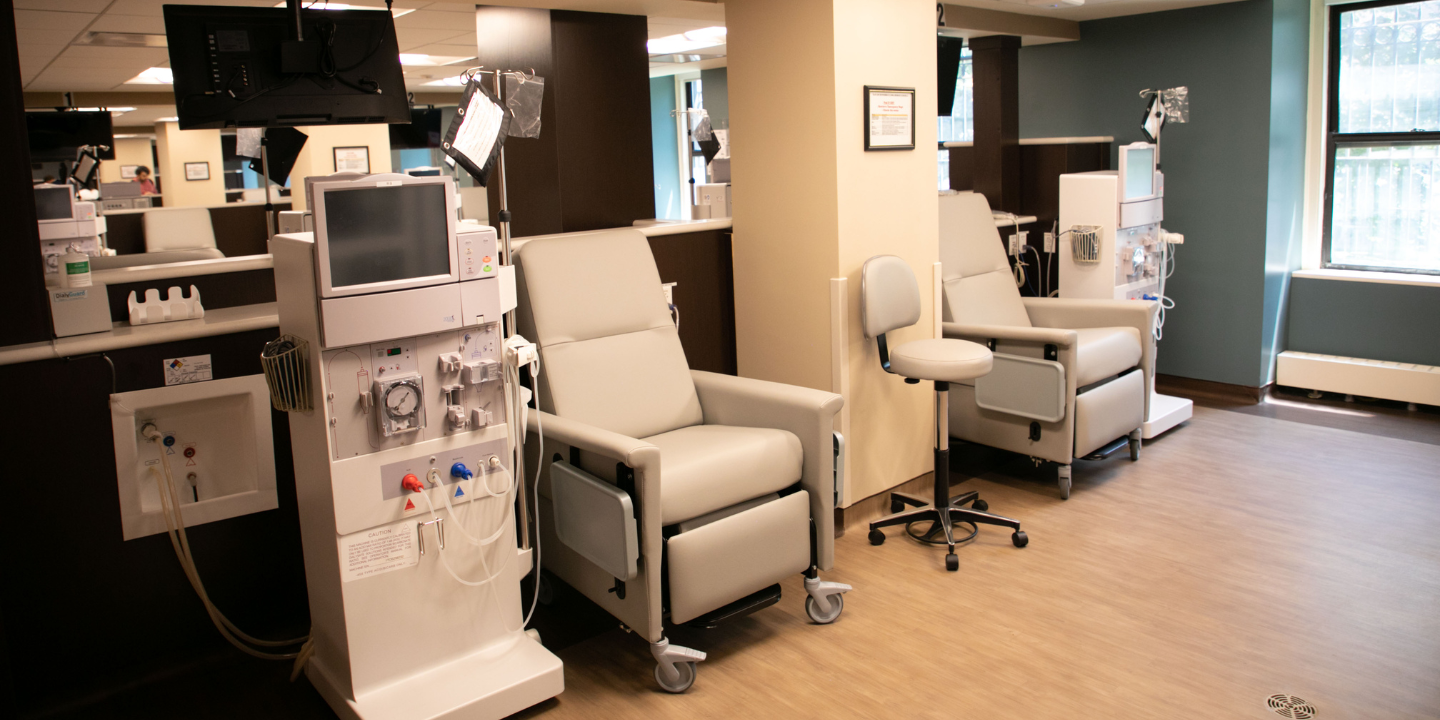Dialysis is a life-saving treatment for those with chronic kidney disease, but maintaining long-term health while on dialysis requires more than just regular treatments. Patients need ongoing care, monitoring, and support to stay healthy and avoid complications.
Inpatient dialysis services offered at skilled nursing facilities like the Methodist Home for Nursing and Rehabilitation, in partnership with the Rogosin Institute, are designed to provide essential care and help patients achieve the best possible outcomes.
Comprehensive Care in One Location
One of the biggest advantages of inpatient dialysis is that patients can receive comprehensive care without leaving the facility. For our short term rehabilitation patients, dialysis is just one part of the suite of healthcare services we offer. Patients receiving inpatient care have access to skilled nursing, physical therapy, occupational therapy, speech therapy, respiratory therapy, nutrition counseling, and more – all under one roof.
This setup ensures that dialysis patients receive the attention they need in every aspect of their health. For example, patients who need physical therapy after a hospital stay or who are working to regain strength while on dialysis can receive both treatments without transferring between different healthcare centers. This convenience not only reduces the physical toll of travel but also helps ensure that care is consistent and coordinated.
Enhanced Monitoring and Safety
For many dialysis patients, especially seniors or those with additional health challenges, regular monitoring is essential to stay healthy. In an inpatient setting, the healthcare team closely tracks each patient’s vital signs, lab results, and overall well-being.
At the Methodist Home, we understand the importance of vigilant monitoring, particularly for patients who are at risk of complications such as infections, electrolyte imbalances, or cardiovascular issues. Our team is experienced in managing these risks and ensuring that treatment is adjusted promptly to address any concerns. This proactive approach can help prevent hospital readmissions and other serious health issues, improving long-term outcomes for dialysis patients.
Emotional and Psychological Support
In addition to physical care, dialysis patients often need emotional and psychological support to manage the challenges that come with their condition. Living with chronic kidney disease and undergoing frequent dialysis treatments can be overwhelming, and the emotional toll can affect a patient’s overall health.
Our team of nurses, social workers, and health partners are available to provide emotional support and help patients navigate the mental and emotional challenges of their treatment. We strive to ensure that our patients’ emotional well-being is as much a priority as their physical health by offering a listening ear, connecting patients with community resources, or encouraging participation in therapeutic activities.
Long-Term Health Focus
The goal of inpatient dialysis services is not just to manage day-to-day treatments, but to focus on long-term health and quality of life. By providing comprehensive, patient-centered care in a skilled nursing setting, we help our patients manage their dialysis needs while addressing other health concerns that may impact their long-term outcomes.
With a team of experienced professionals dedicated to your care, we strive to ensure that every patient feels supported, comfortable, and confident in their treatment journey. Our inpatient dialysis program is designed to help you maintain your health, improve your quality of life, and achieve the best possible outcomes over the long term.
Contact us today to learn more about our inpatient dialysis services.

